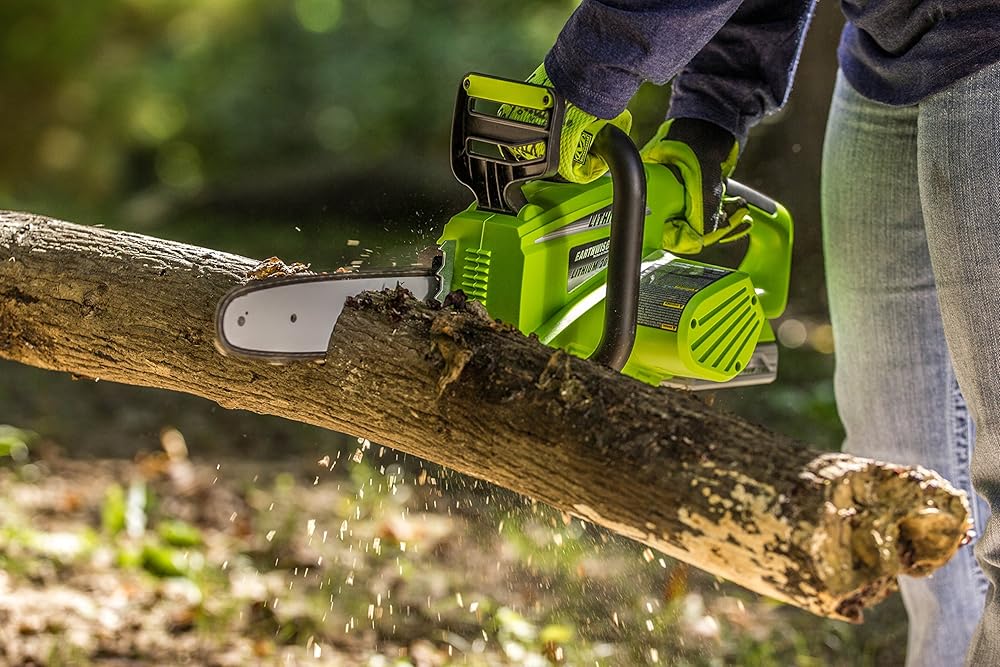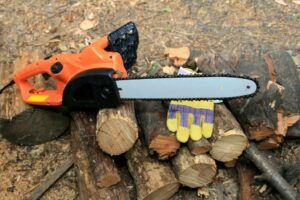
If you’re an adept chainsaw user, you’ll surely want the satisfaction of being able to rely on your tool each time you pull it out. An efficient chainsaw gets the job done easily, faster and ensures consistency irrespective of its point of use.
However, to maintain this desired qualities, a chainsaw has to be lubricated with the right oil grade.
Chainsaws, being the sharp and strong machines they are can be very fragile and be largely affected by elements in the weather especially if they are not properly taken care of.
Understanding the weight of bar oil and how it effects on your chainsaw’s chain will make sure it is steady running even under the worst circumstances.
Before picking a particular oil, it is usually good practice to read through your chainsaw’s user manual since most chainsaws are different and will not work well with some oil types.
Dissimilarities in oil types
Different chainsaws work with different oil types under different weather conditions, and operators need to understand the link between these three differences to reach their tool’s full potential. Some of the oil variations for chainsaws include:
- Vegetable oil
- Motor oil
- Petroleum-based oil
Even though bar and chain oil is a generally recommendable option, petroleum-based oils have still been the standard for chainsaws for some time now. The problem with these petroleum based bar oils is they are usually not nature-friendly and are damaging to the environment.
Normally, chainsaws spill oil as they work and petroleum-based ones are hazardous to wildlife and trees, ultimately endangering the chainsaw operator’s health. To solve this problem, oil companies started producing vegetable oils but even these ones are damaging as well – but in a more gentle and manageable way.
Vegetable based oil also tend to last more than most other types which will provide tons of benefits including cost effectiveness.
See also: Bar And Chain Oil Alternatives
Considering the weather condition
It’s common practice for chainsaws operators to use thicker oils during winter and switch to lightweight oils in warmer weather conditions. Also, most operators resort to mixing bar oils in order to prolong a full chainsaw’s lifespan. Turns out this method has been proven to be very effective in harsh weather conditions.
All things considered, it’s best to always go for new oil purchases for desirable results and only try out bar oil when your working environment is somewhat compromising.
Importance of adhesiveness property in oils
Adequate adhesiveness is another very important feature of the right oil to ensure your chainsaw is steady working effectively. This is due to its coating property that keeps debris and dirt away from the essential parts of the chainsaw and its power in strongly preventing friction that might damage the chainsaw.
Additionally, the adhesive property tends to extend the lasting effect of oils. Bar oil fall right into this category and will be perfect for use by operators, however you need to be wary of your weather.
Putting it all together
Bar and chain oil was specifically developed to hold a chainsaw’s bar and chain tightly together. While it does not have an SAE grade (official weight classification), its weight is usually determined according to winter or summer user.
Your chainsaw will surely suffer the negative effects if you fail to understand how much your oil can impact it. For this reason, bar and chain oil should suit most loggers. They usually have a 10W relative weight during winter and 30W during warm weather conditions.
You can check most oils authenticity by putting on the chainsaw and looking for any oil spills at about 8 inches on the other side. If you notice any, then you have a good chainsaw oil, otherwise consider changing the oil.
It’d be helpful to note that cold weather usually adversely affect oils making it thick while warmer weather make them more watery.
Your chainsaw is mostly useless when it can’t deliver effectively and it’s extremely important to factor in all the point above when purchasing oil for your tool. Evidently, bar and chain oil are still most effective due to its flexibility and durability in tough climates.



![9 Best Pole Saws of 2023 [Ultimate Guide] 9 Best Pole Saws of 2023 [Ultimate Guide]](https://handykeen.b-cdn.net/wp-content/uploads/2021/03/best-pole-saw-300x200.jpg)


